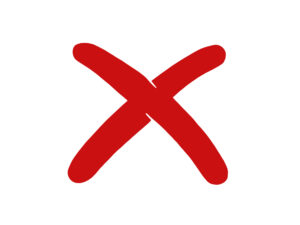How ethical and sustainable is Grey Goose?
Grey Goose is included in The Good Shopping Guide’s Spirits Ethical Ratings Table. Grey Goose does not currently meet our Ethical Benchmark, but we hope that in the future, the brand will make the necessary changes to operate as a more ethical organisation. Grey Goose could increase consumer trust by applying for Ethical Accreditation, which would include a more complete examination and more detailed suggestions for ethical development.
More information on the issues this industry faces may be found in The Good Shopping Guide to Ethical Spirits brands. Then, in our Spirits Ethical Ratings Table, compare Grey Goose to other brands.
What does Grey Goose do?
Grey Goose began in 1997 by Sidney Frank and Francois Thibault. The brand is known for producing premium French vodka, it also produces ‘essence’: ‘products that are flavoured with fruits and botanicals with flavours such as orange and watermelon, basil and strawberry and lemongrass’. BACARDI acquired the brand in 2004.
For which criteria does Grey Goose perform poorly?
Grey Goose received a low rating as the brand has no Organic or Vegan alcohol products; as well as this, the brand’s parent company BACARDI donated over $258k in recent election cycles, resulting in a poor Political Donations score.
Grey Goose received a middle rating for its lack of a Genetic Modification policy; the brand has no criticisms for this ethical issue but does not rule it out with a clear statement.
In what areas does Grey Goose score well for its ethics?
Grey Goose receives a high score for its Environmental Report; the brand’s parent company, BACARDI’s, sustainability page has targets for this year and onwards including evidence of its progress. This can be found here. Grey Goose also received a high rating in our Nuclear, Armaments, Fossil Fuel and Animal Welfare categories, with no Public Record Criticisms.
How can Grey Goose improve its Ethical Rating?
The Ethical Rating of a brand is divided into three categories by The Good Shopping Guide: the Environment, People and Animals. Find out more about how we rate and research the sustainability of brands.
Grey Goose might apply for Ethical Accreditation for more detailed guidance on how to improve its Ethical Rating.
Grey Goose may improve its rating and fulfil our fundamental ethical requirements by introducing an Organic or Vegan alcohol range, and ensuring BACARDI ceases all Political Donations to avoid exerting influence over politics or democracy.
Why not check out The Good Shopping Guide’s Ethical Accreditation if you work for or with a Spirits company that places brand ethics, or ESG/ CSR policies high on its priority list?
Contact us to learn more about how your brand can cut through the greenwash, or complete our short form for an initial ethical evaluation.
Ethical performance in category
GSG score
GSG category benchmark
Ethical Rating
Environment
-
Environmental Report
Good
-
Genetic Modification
Acceptable
-
Organic
Poor
-
Nuclear Power
Good
-
Fossil Fuels
Good
Animal
-
Animal Welfare
Good
-
Vegetarian/Vegan Verified
Poor
People
-
Armaments
Good
-
Political Donations
Poor
Other
-
Ethical Accreditation
Poor
-
Public Record Criticisms
Good
= GSG Top Rating = GSG Middle Rating = GSG Bottom Rating
